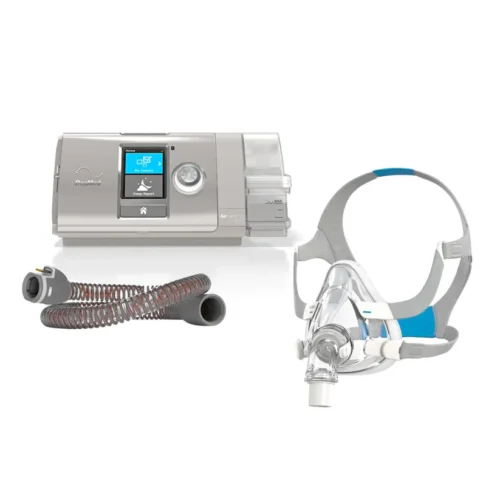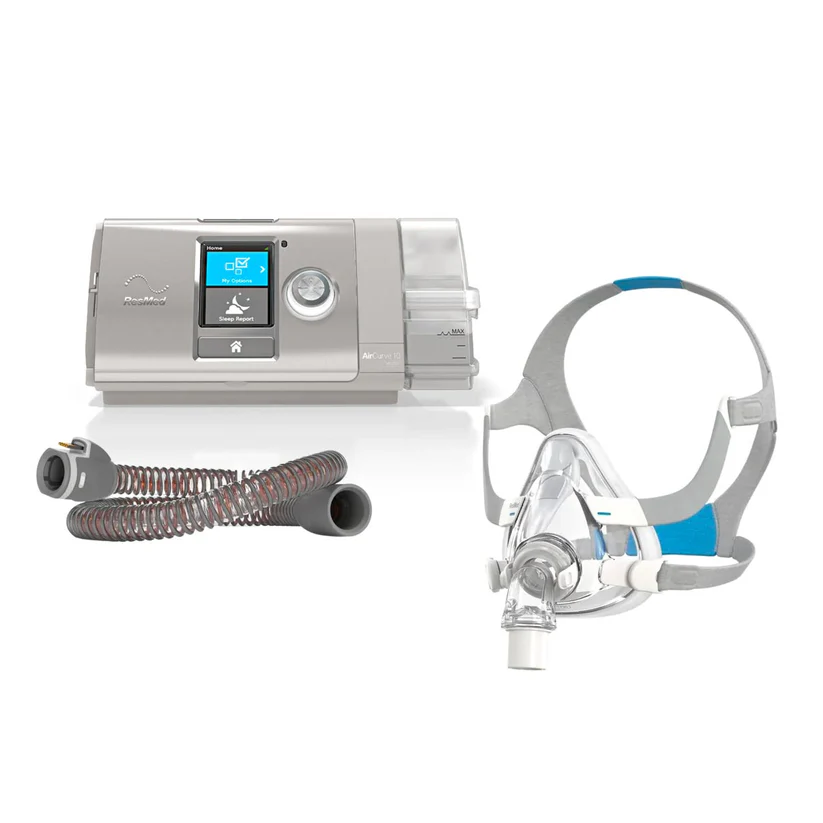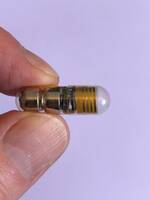A restful night’s sleep is essential for maintaining physical health, mental clarity, and daily productivity. However, sleep disorders like sleep apnoea can severely affect sleep quality, leading to various health issues. Fortunately, London is home to some of the world’s leading sleep specialists who provide expert diagnosis and treatment. In this article, we will explore what sleep apnoea is and how London’s sleep clinic offers effective solutions to manage and treat this condition.
Obstructive Sleep Apnea / 28.10.2024
Sleep Apnea- ResMed AirSense™ 10 AutoSet™ Tri-Pack: A Comprehensive Overview
 The ResMed AirSense™ 10 AutoSet™ Tri-Pack is an essential package designed for individuals with sleep apnea who require consistent and effective therapy. This article delves into the key features benefits and frequently asked questions surrounding the ResMed AirSense™ 10 AutoSet™ Tri-Pack offering a guide to help you understand its significance in sleep apnea treatment.
What is the ResMed AirSense™ 10 AutoSet™ Tri-Pack?
The ResMed AirSense™ 10 AutoSet™ Tri-Pack is a bundle that includes three essential items designed to optimize sleep apnea therapy. The package typically consists of the ResMed AirSense™ 10 AutoSet™ device a humidifier and heated tubing all aimed at improving the comfort and effectiveness of your CPAP therapy. The AutoSet feature ensures that the device automatically adjusts pressure levels based on your needs offering personalized treatment.
(more…)
The ResMed AirSense™ 10 AutoSet™ Tri-Pack is an essential package designed for individuals with sleep apnea who require consistent and effective therapy. This article delves into the key features benefits and frequently asked questions surrounding the ResMed AirSense™ 10 AutoSet™ Tri-Pack offering a guide to help you understand its significance in sleep apnea treatment.
What is the ResMed AirSense™ 10 AutoSet™ Tri-Pack?
The ResMed AirSense™ 10 AutoSet™ Tri-Pack is a bundle that includes three essential items designed to optimize sleep apnea therapy. The package typically consists of the ResMed AirSense™ 10 AutoSet™ device a humidifier and heated tubing all aimed at improving the comfort and effectiveness of your CPAP therapy. The AutoSet feature ensures that the device automatically adjusts pressure levels based on your needs offering personalized treatment.
(more…)
In an era where technology is rapidly transforming healthcare, Dr. Avinesh Bhar has emerged as a leading figure in the field of sleep medicine. Through his innovative platform, Sliiip.com, Dr. Bhar is revolutionizing how people with sleep issues access care. His accomplishments in telemedicine are not only groundbreaking but also essential for addressing the growing prevalence of sleep disorders.
Who is Dr. Avinesh Bhar?
Dr. Avinesh Bhar is a renowned sleep doctor dedicated to advancing the treatment and understanding of sleep disorders. With a background in sleep medicine and a passion for leveraging technology to improve patient outcomes, Dr. Bhar has made significant strides in making sleep health services more accessible and effective. (more…)
Author Interviews, Pulmonary Disease, Sleep Disorders / 21.05.2024
ATS24: Mount Sinai Study Develops Algorithm to Distinguish Central vs Obstructive Sleep Apnea
MedicalResearch.com Interview with:
Ankit Parekh, PhD
Director of the Sleep And Circadian Analysis (SCAN) Group
Assistant Professor of Medicine
(Pulmonary, Critical Care and Sleep Medicine)
Icahn School of Medicine at Mount Sinai
MedicalResearch.com: What is the background for this study? What are the main findings?
Response: Sleep apnea is associated with incident cardiovascular disease, and is a common chronic condition affecting over a billion people worldwide. In diagnosing and treating sleep apnea, it is imperative to establish the type of sleep apnea—whether it is obstructive or central sleep apnea. The differential contribution of central vs. obstructive sleep apnea toward incidental cardiovascular disease in those with significant sleep apnea has not been well studied.
Our group has developed an automated algorithm that deduces on a breath-by-breath level whether reductions in airflow are predominantly due to obstructive or central phenomena. Our algorithm uses several features that are known to be key in distinguishing the type of events and derives a probability of obstruction across each “small” (reduced amplitude) breath. The breath-by-breath probability is then used to determine whether a patient’s burden of sleep apnea is predominantly obstructive or central.
In this work, we analyzed sleep study data from The Osteoporotic Fractures in Men (MrOS) cohort (N=2793) consisting of elderly men, across two visits separated on average by 6.5 years, and derived the probability of obstruction on a breath-by-breath level. The median probability of obstruction for each subject was computed and analyzed against outcomes of cardiovascular disease. We also assessed the stability of the metric in those without any prevalent cardiovascular disease. We find that median probability of obstruction was stable across the two visits, and those with any incident cardiovascular disease had a lower median probability of obstruction: patients with incident cardiovascular outcomes had a significant burden of sleep apnea that was predominantly “central” in nature.
(more…)
Author Interviews, Brigham & Women's - Harvard, Gastrointestinal Disease, Obstructive Sleep Apnea, Technology / 18.11.2023
Brigham/MIT/WVU Scientists Develop Pill to Measure Vital Signs Without Blood Tests or Wires
MedicalResearch.com Interview with:
Giovanni Traverso MD PhD
Karl Van Tassel (1925) Career Development Professor
Department of Mechanical Engineering
Koch Institute of Integrative Cancer Research
Division of Gastroenterology
Brigham and Women’s Hospital
Harvard Medical School, Boston, MA, USA
MedicalResearch.com: What is the background for this study?
Response: I think its always important to acknowledge that this is a big team effort. We have the teams from MIT, Celero Systems, West Virgnia University (WVU) and Brigham and Women’s Hospital (BWH) all working together on this. For this study, Celero prototyped the devices that we tested in pre-clinical (Swine) models and in a first-in-human study with the team at WVU.
Our lab focuses on the development of ingestible devices for drug delivery and sensing and these have informed the development of these efforts as you can see.
MedicalResearch.com: What types of vital signs are measurable in this fashion?
Response: Heart rate and respiratory rate.
(more…)
AHA Journals, Author Interviews, Heart Disease, Kidney Disease, Obstructive Sleep Apnea, Sleep Disorders / 15.11.2023
AHA23: Unexpected Link Between Sleep Apnea and Cardiovascular Events in Kidney Disease Patients
MedicalResearch.com Interview with:
Lead Author: Rupak Desai, MBBS
Atlanta Veterans Affairs Medical Center
Independent Researcher, Atlanta, GA,
Presenter: Vamsikalyan Borra, MD
Resident Physician, Internal Medicine
University of Texas Rio Grande Valley, Weslaco, TX
MedicalResearch.com: What is the background for this study?
Response: The relationship between sleep apnea (OSA) and chronic kidney disease (CKD) is quite complex. OSA can cause hypoxia, activation of the sympathetic nervous system, and hypertension, all of which can have negative effects on kidney function. On the other hand, in patients with end-stage renal disease (ESRD), intensifying renal replacement therapy has shown some improvement in sleep apnea severity, suggesting a bi-directional relationship between the two conditions. While there are still uncertainties, recent studies have focused on understanding the interplay between OSA and CKD.
The role of CPAP therapy, a common treatment for OSA, in relation to CKD is not yet clear. Observational studies present findings regarding the impact of CPAPs on kidney function. However, researchers are actively investigating its cardiovascular benefits and its influence on the progression of CKD.
The objective of this study is to analyze the trends in composite cardiovascular events in hospital encounters among geriatric patients with CKD, comparing those with and without obstructive sleep apnea. Additionally, we are also investigating sex and racial disparities in trends of major adverse cardiovascular and cerebrovascular events (MACCE) among geriatric patients with obstructive sleep apnea (OSA). Furthermore, we are assessing the impact of continuous positive airway pressure (CPAP) treatment and dependence on MACCE outcomes in OSA patients
(more…)
Aging, Author Interviews, Sleep Disorders / 15.03.2022
Sleep Apnea Accelerates Aging – CPAP Therapy May Help Slow it Down
MedicalResearch.com Interview with:
Rene Cortese, PhD
Assistant Professor
Department of Child Health – Child Health Research Institute
Department of Obstetrics, Gynecology and Women’s Health
School of Medicine
Core Faculty - MU Institute for Data Science and Informatics
University of Missouri
Columbia, MO 65212
MedicalResearch.com: What is the background for this study? What are the main findings?
Response: Obstructive sleep apnea (OSA) affects 22 million people in the U.S. and is linked to a higher risk of hypertension, heart attacks, stroke, diabetes, and many other chronic conditions.
We have found that untreated OSA also accelerates the biological aging process, and that appropriate treatment can slow or possibly reverse the trend. Age acceleration testing involves a blood test that analyzes DNA and uses an algorithm to measure a person’s biological age. The phenomenon of a person’s biological age surpassing their chronological age is called “epigenetic age acceleration” and is linked to overall mortality and to chronic diseases.
(more…)
AHA Journals, Author Interviews, Obstructive Sleep Apnea, UCSF / 21.06.2021
AHA Scientific Statement Highlights Link Between Obstructive Sleep Apnea and Heart Disease
MedicalResearch.com Interview with:
Yerem Yeghiazarians, MD
Professor of Medicine
Leone-Perkins Family Endowed Chair in Cardiology
San Francisco Board Past-President, American Heart Association
Co-Director, Adult Cardiac Catheterization Laboratory
Director, Peripheral Interventional Cardiology Program
Director, Translational Cardiac Stem Cell Program
Cardiovascular Research Institute
Eli and Edythe Broad Center of Regeneration Medicine and Stem Cell Research
Associate Member in Experimental Therapeutics, UCSF Helen Diller Cancer Center
University of California, San Francisco
MedicalResearch.com: What is the background for this study?
Response: Obstructive sleep apnea is very common, undiagnosed and undertreated. The AHA Scientific Statement was prepared to increase awareness amongst physicians and patients about this condition and to encourage more screening and therapy as appropriate.
Obesity is certainly one of the significant risk factors for sleep apnea and we highlight this in the Scientific Statement:
“The risk of OSA correlates with body mass index, and obesity remains the one major modifiable
risk factor for OSA. In a population-based cohort study of 690 subjects, a 10% weight gain was associated with nearly 32% increase in the apnea-hypopnea index (AHI), and even modest weight control was effective in reducing the new occurrence of sleep-disordered breathing. An even stronger correlation exists between OSA and increased waist circumference and neck size.
Neck sizes predisposing to OSA are usually >17 and 16 in for men and women, respectively.” (more…)
Alzheimer's - Dementia, Author Interviews, Cognitive Issues, Obstructive Sleep Apnea, Pulmonary Disease, University of Michigan / 16.04.2021
Sleep Apnea: CPAP Therapy May Reduce Risk of Dementia
MedicalResearch.com Interview with:
Galit Levi Dunietz MPH, PhD
Assistant Professor
University of Michigan, Medical School
Department of Neurology
Department of Nutritional Sciences
Ann Arbor, MI 48109-5845
MedicalResearch.com: What is the background for this study?
Response: Dementia is a public health crisis that affects more than 6 million Americans. As no treatments to effectively reverse dementia are currently available, interest has shifted toward modifiable risk factors for dementia, which may offer a critical window for prevention or intervention.
Recent research suggests that obstructive sleep apnea (OSA) is a common, yet undiagnosed, risk factor for cognition impairment in older adults. However, few studies have examined whether treatment of OSA with positive airway pressure (PAP) therapy could protect those with OSA against developing dementia, says principal investigator, Dr. Tiffany Braley, MD, MS, Associate Professor of Neurology from the University of Michigan.
To address this gap, Dr. Braley and Dr. Galit Levi Dunietz, PhD, MPH, Assistant Professor and sleep epidemiologist, examined associations between PAP therapy use and 3-year incidence of Alzheimer’s disease, mild cognitive impairment (MCI), or other forms of dementia (DNOS, “dementia not otherwise specified”).
(more…)
Tiffany Braley, MD, MS Associate Professor









